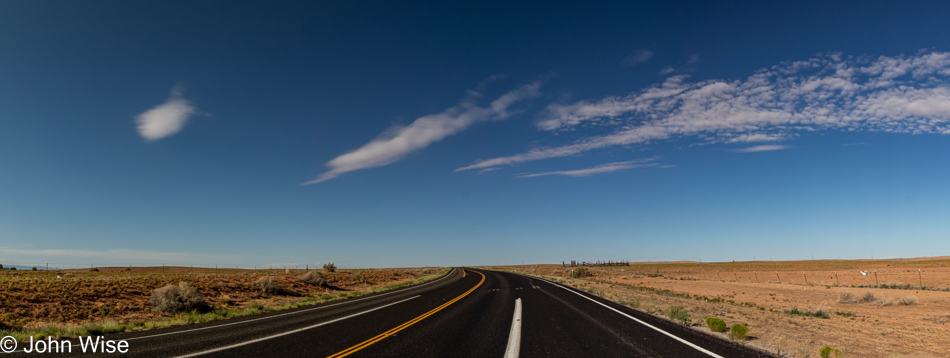
Independence Day out in a space that allows an extraordinary amount of freedom and independence to be had; that’s where we are. Nothing consumed, not a lot desired, and very little purchased is how we travel into this day, which in some way mirrors our lives at home. We comfortably find ourselves in a vast landscape, trying to interpret a horizon without easy markers or signs to guide us into the unfamiliar, and that’s okay.
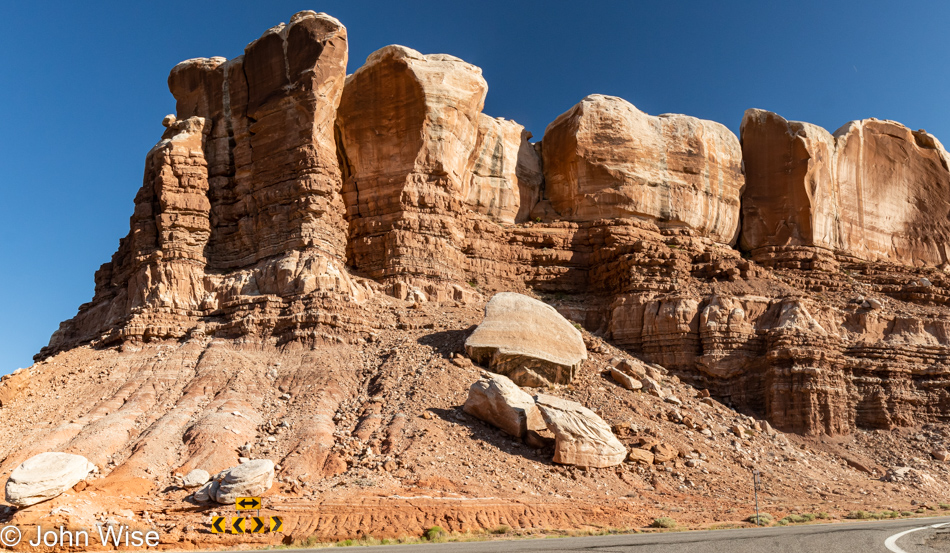
Is Independence Day still a celebration of our freedom from tyranny or simply the faint recollection of historic events that paved the way for some idealistic notions? Certain declarations and amendments have come to stand in for whatever the thoughts might have been surrounding a collective sense of being free Americans, but are two or three fragments the extent of what independence means? Why do so many find our constitutional declarations ensconced in law to be tenuous at best and in need of constant anxious lament as though at any moment they will be ripped from the clutch of patriots who apparently are the only truly aware Americans? I’m afraid that this nervous energy and a constant refrain that everything America stands for is on the brink of being torn away is a toxic salve bringing infection to a wound exploited by hyperbolic political shysters, modern-day media snake oil salesmen, and pundit quacks who are not expert in anything other than terror.
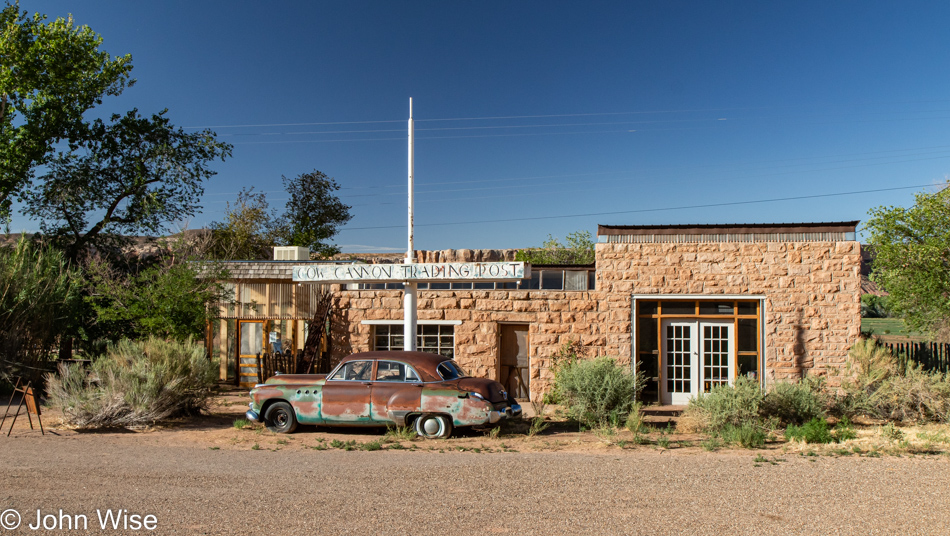
People stuck in paradigms of the past appear most susceptible to fear and deception that exploits their unenlightened minds. Maybe they are broken and undereducated due to an indoctrination that made them slaves to a jingoistic and overzealous dogma from which they are now unable to break free. How, then, are those people free or independent? They are not; they are like this broken-down, rusting jalopy that is not going anywhere. Put a TV in front of this car, and you are effectively seeing many of my fellow citizens: frozen by gravity, useless, a relic from a past that failed to maintain any kind of momentum that might have allowed them to glide into the present and hopefully the future too.
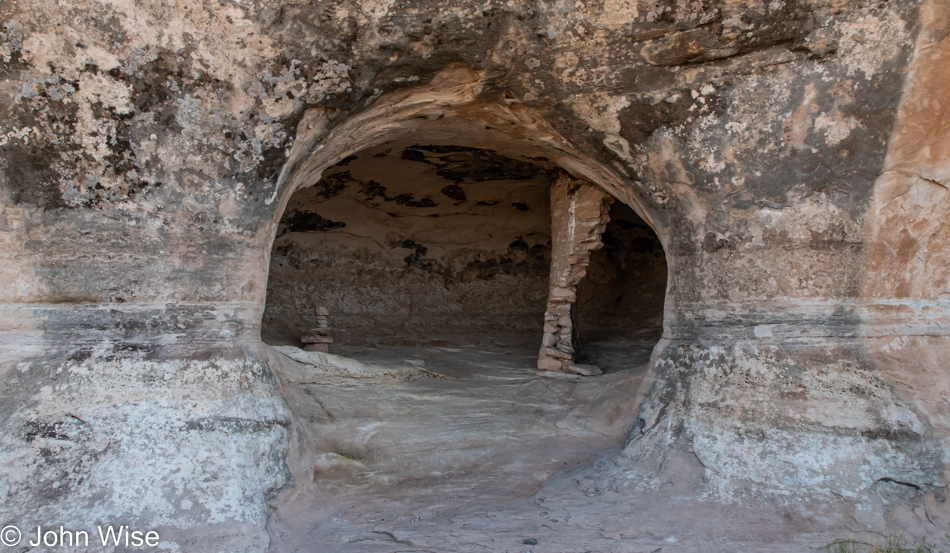
I should offer up some details regarding this day that actually pertains to our trip from Utah that will take us home to Phoenix, Arizona, today. We woke in Blanding, a small town with a population of just under 3,600 people, and headed south. The sandstone bluff in the second photo is at the edge of the town of Bluff that we visited at the end of May; the car at the Cow Canyon Trading Post is also in Bluff. This wall fragment was at one time either part of a dwelling or maybe a storage area. I spotted it from the road, and it begged us to pay a visit. From here, we traveled toward Montezuma Creek and Aneth on our way to a special crossroads in the middle of nowhere.
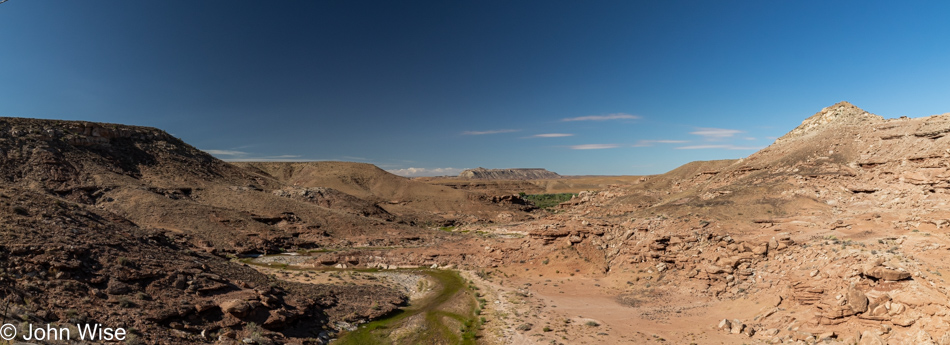
Nowhere is where I live my best life, where nothing I own is strewn before or around me. All I can do is look upon the nothingness that embodies everything and has an intrinsic value exceeding the things that might be considered mine. When this wash is running it feeds into the San Juan River, which is the green spot out in the distance of this photo. For countless years, the rains have come and gone and, on occasion, left enough moisture that the streambed carved itself into the landscape. On this particular day, its path is evidenced by the green S curve starting in the foreground. The hand of nature out here has been employing the engineering forces of natural processes to build the most elegant of places that I will ever witness while standing at this particular place on State Route 162 located in San Juan County, Utah. So, now I’ve been everywhere and seen everything where nothing existed until I embued it with all the appreciation and value of someone able to find things meaningful while exploring the freedom of independence to do such things.
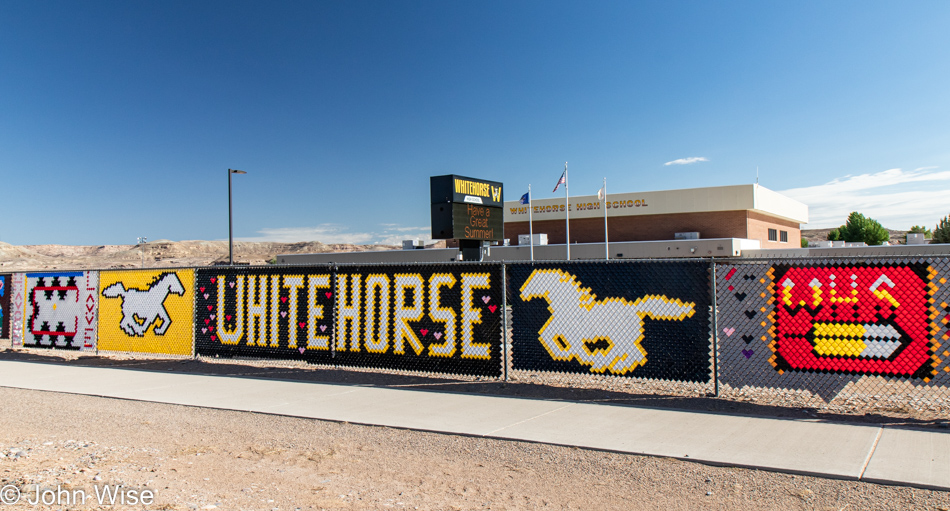
We had to stop here in Montezuma Creek, Utah, to admire the artwork of the students at Whitehorse High School who, when not exploring their creativity, are locked in classrooms being indoctrinated into believing that what they are being forced to learn will deliver them from the wretched poverty in which many of their parents exist. The cruel dichotomy here is that these kids are learning just enough to have them either conform or fail and likely relinquish themselves to systems that will exploit their incarceration. Without hope of further real education, they will languish in meager subsistence jobs not far from where they are growing up and never know the freedom of independence that the United States claims is a key part of our cultural DNA. Native Americans, like many minorities that can’t afford participation, are tossed by the wayside of something less than nothing, a place without hope or the ability to interpret what riches they might have if they were seriously knowledgable about truths. These truths are simply the idea that freedom is a state of mind afforded by removing oneself from the struggle of just surviving abject poverty, and this is where real education comes to bear.
I need to make clear here that my focus is not lamenting the situation of the poor, minorities, or other disadvantaged groups; the system is stacked against them, and they do what they can with the little they have. My real complaint is about those who have the means to be free and independent but are simultaneously deeply entrenched in their intellectual stagnation and being the loudest about their fear of what they claim is being stolen from them, which is absolutely nothing.
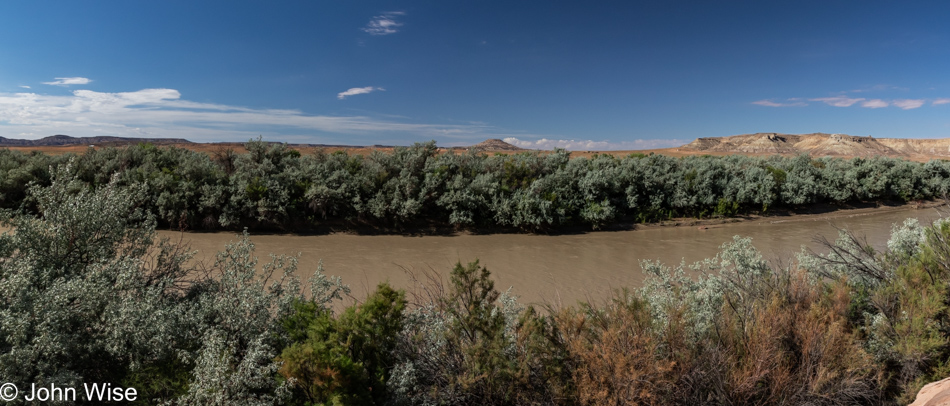
We cannot contain the ocean, the sun, or the wind, and we are fairly adept at controlling the river, bringing light to darkness, and giving ourselves the ability to move quickly over the surface of the planet, but we are absolute masters of bringing totalitarian enslavement upon the minds of the masses who are terrified to lose their shelter, sustenance, and social standing in a broken community of lonely souls drunk on the desire for out-of-reach riches that never offered real happiness to anyone in the first place. Love is the water that is supposed to flow down the river of life and through our communities, but we’ve created a drought by selling false dreams to people who will likely never know better and must endure the suffering of unfulfilled lives while we who have it all always get more. For us, the river is a deluge that welcomes us to grow more, secret away these precious resources so they may always be there for us; all the while, we pity those who supposedly won’t help themselves as we are oblivious to how systems are stacked against the ill-educated.
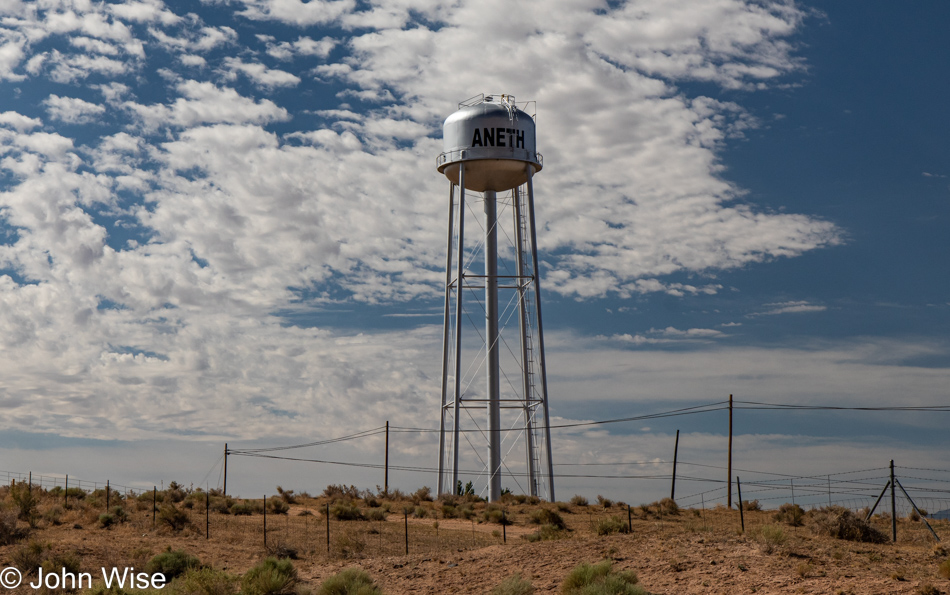
Aneth, Utah, is indicative of the disappearance of hope and opportunity, a place where the freedom to survive on ancestral lands is bulldozed by the allure of a fake image of life delivered by TV, the internet, and video games. In the past 20 years, Aneth has seen its population shrink by 139 people, and while that may not sound significant, consider that this means the town went from 598 people down to 459 for a loss of 1 in 4 Anethians. This is obviously a tragic situation for the local Navajo population since a town that is disappearing from the map has to support an elementary school that pays its senior teachers $80,000 a year and is apparently only working to catapult their children to places elsewhere.
With the intrusion of sham dreams of wild success that can be easily had in America’s big cities, the traditions of a community are shattered as fresh transplants crash into the cold reality of life in the uncaring environment of the metropolis. The broken young souls either fall to the wayside or return to the old town, contributing to its decay and their own dissatisfaction. This is not independence or freedom; it is planned disenfranchisement, obsolescence, cultural obliteration, and oppression. Aneth represents just 1 of 110 Navajo communities that are likely in similar predicaments. Now consider that by land area, the Navajo Nation is as large as the Netherlands and Belgium combined, but the GDPs of these two countries add up to almost $1.5 trillion compared to just $12.8 billion of economic activity on the largest Indian reservation in the United States; this is not an accident.
Sure, this is a poor comparison when one thinks that in Belgium and the Netherlands, the combined population is 29 million people strong in contrast to the Navajo Nation’s anemic 173,000 people, but in a country like the United States that has intentionally worked to disadvantage Native Americans, one might think we as a country could do better to honor those who have paid so much by suffering near total annihilation. Stop a moment and think of this: in Texas, 3.3 million people receive state aid, and nearly 2.8 million in Florida do too. Are we really a country of people who love independence and freedom that helps foster healthy communities and citizens, or are we a bunch of gun-loving nutjob individualists afraid of a tyrannical boogeyman created by marginalized megalomaniacs who become wealthy on this dissatisfaction, thus monopolizing another part of people’s vulnerability?
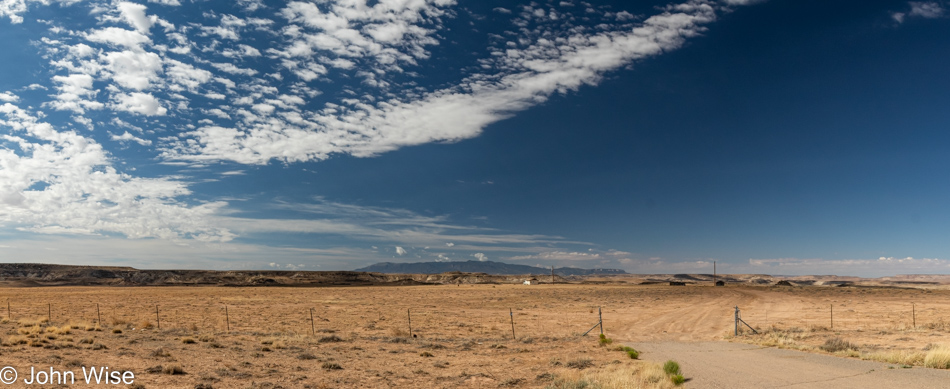
So, let’s all just look out on the horizon and refuse to see what we don’t want to see anyway. We are, after all, free to do exactly just what we want to do, even at the expense of sustaining a thriving nation. At one time, we were a union, not only that, we were trying to form a perfect union in order to establish our nation of the United States. Today, we are millions of individuals oblivious to our real role as neighbors willing to defend each other, help one another, and stand together. But the blue skies of optimism have been clouded over not exclusively by those in power but by all of us, the “We the people” part of all of us, because we are no longer we. This is a country of us and them. So on this 4th of July, which should be a joyous moment recognizing the accomplishments of a great country, we should bow down in respect of a dream that is dissipating like so many thin clouds on a hot day.
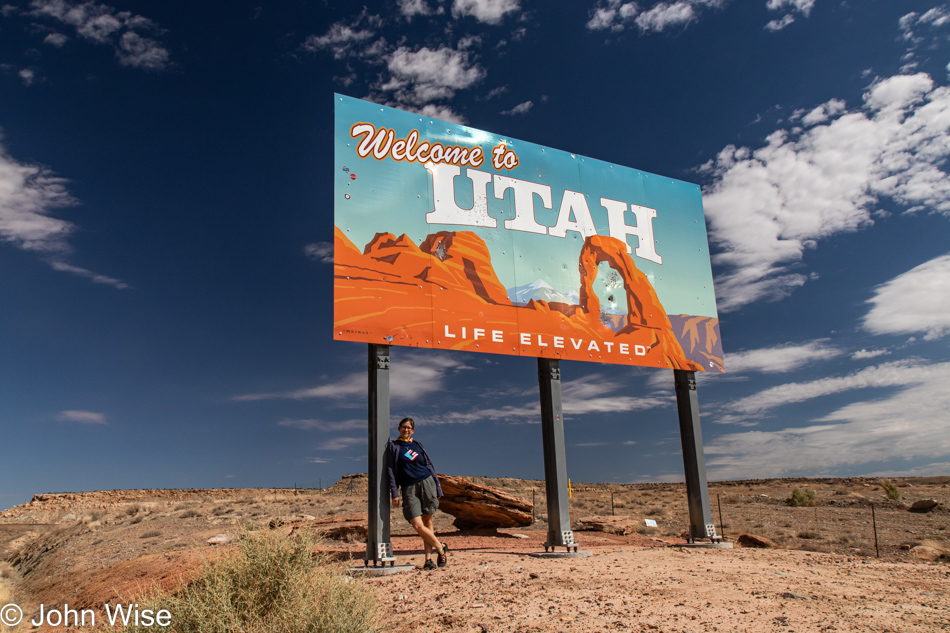
But that is not the America Caroline and I choose to live in. Our America is one of dreams and ideals where we’ve carved out just enough and seized the opportunity to find our way into a dream, though I’m not sure it resembles the idea of the bigger American Dream. You see, we are selfish, greedy, and maybe a bit isolated. We are selfish because we no longer buy into needing things like large homes, expensive cars, a vast wardrobe, or the other trappings of conspicuous consumption. We are greedy as we save money, predominately cook at home, set our thermostat higher, and save from not participating with subscriptions to frivolous services. We are isolated due to being avid readers, not owning a television, not playing golf, or rooting for sports franchises of any sort.
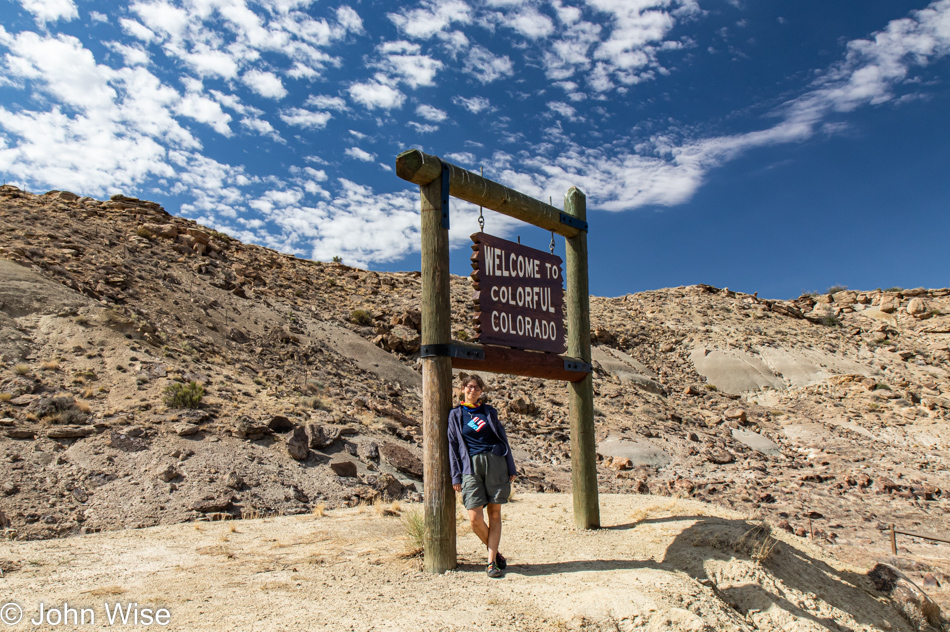
We’ve chosen our own path that recognizes our limitations to earn more and more. We’ve seen that those with more of all and nearly everything are rarely living profound and joyful lives. We understand that a chance encounter with someone less fortunate will likely offer us a more meaningful experience than listening to someone feeding us details about some celebrity, indignation regarding a politician of any persuasion, or their latest acquisition they believe enhances their position in the hierarchy of accomplishments.
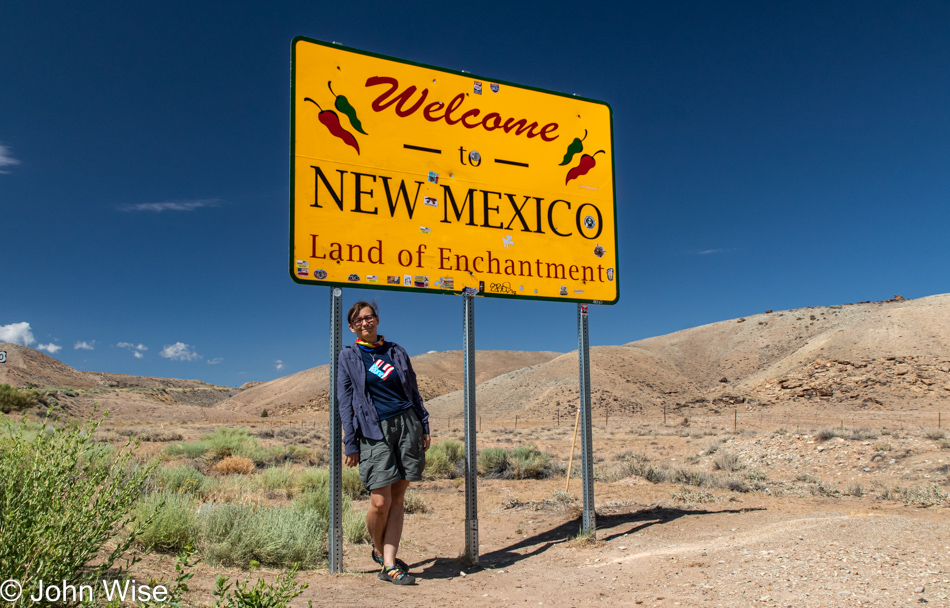
We stand mostly alone with our ideals carrying dreams from a bygone era that if you ventured out into your country and into yourself, you might find experiential riches that would define you as a real explorer, a real American, a person living a life well lived. We still adhere to these ideas towering overhead as aspirations that are meant to be embraced. Caroline just recently became an American citizen and did so with tears in her eyes as she knows firsthand what is possible, but sadly, it is only because we had to separate ourselves from the masses defined by a lot of nothing, masses who don’t know the real American Dream and are angry that they are living in dystopian nightmares of their own creation.
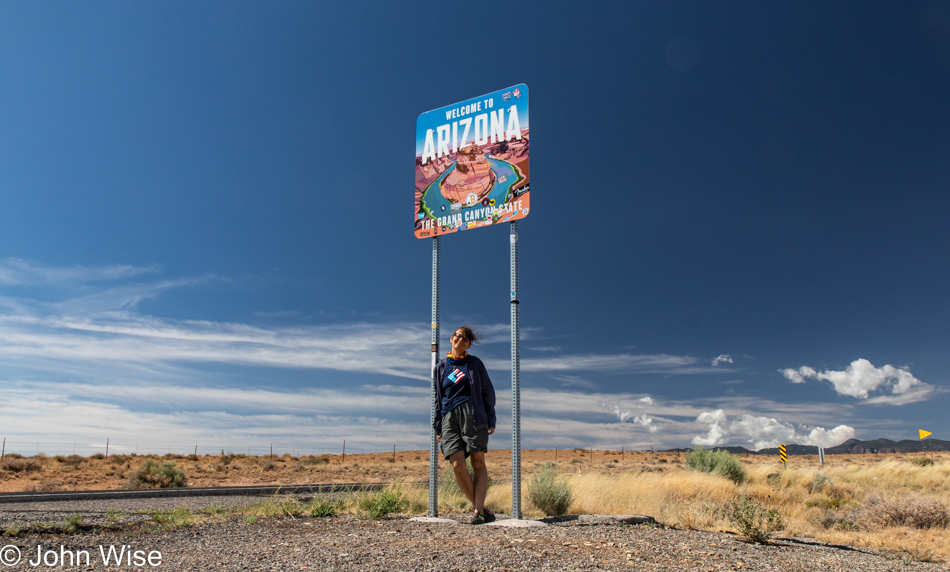
Just stop a second and look at this: we are living the adage extolled in the Declaration of Independence regarding Life, Liberty, and the pursuit of Happiness. We are free under our current system to find just those things; nobody is trying to take anything from us, but we must be willing to give to ourselves and adapt to a changing world. Our founding fathers never envisioned a day when people would travel at 60 mph over land in air-conditioned vehicles, take photos of exquisite detail, and call ahead to a restaurant in the middle of a desert to verify their hours, but that’s what we do, and all that’s required is to continue changing with the times.
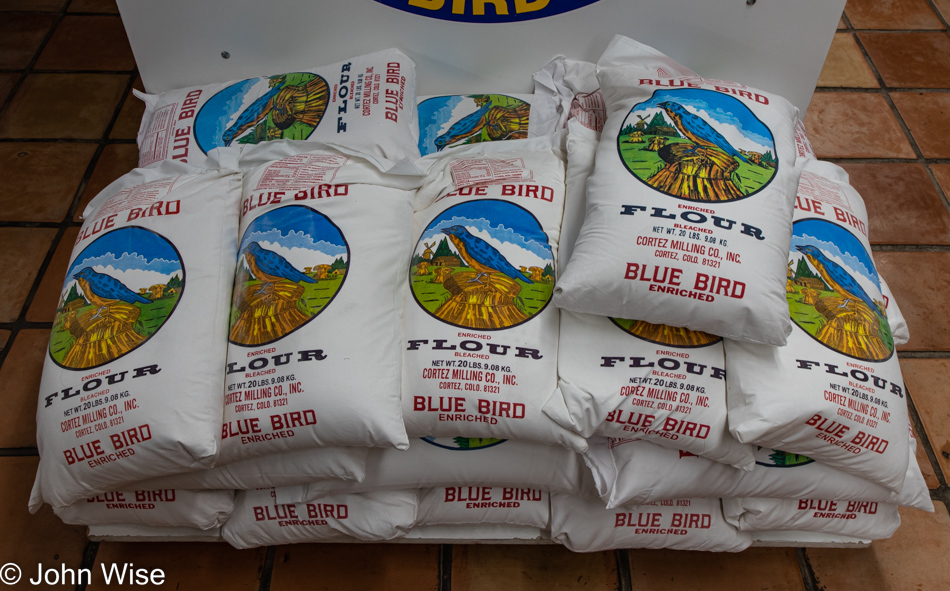
These bags of flour will not make themselves into a cake, bagels, or the Navajo frybread it is likely destined to become. Someone else will have to transform it; the flour will be altered by the addition of other ingredients, be they savory or sweet; the point is that these constituent parts will see their chemistry changed but still won’t be done until they find their way into a transitional form of having been cooked. And though the flour and that which was added will become food, it will then need to be consumed to act as nourishment. Maybe a grandmother made a cake, a dad made his kids pancakes on a Sunday morning, or a husband and wife are making frybread next to the road and loading it with roast mutton for passersby, such as my wife and me. This act of change and preparation is what will sustain those who benefit from the efforts of a community. This parable is what a nation, a people, a country of united souls does for one another, but we’ve lost sight of the basic ingredients right in front of us. Instead, we are pissed off when we must deal with the investment of effort to transform things on our own because the 20-layer cake isn’t being spoon-fed to us when we want it.
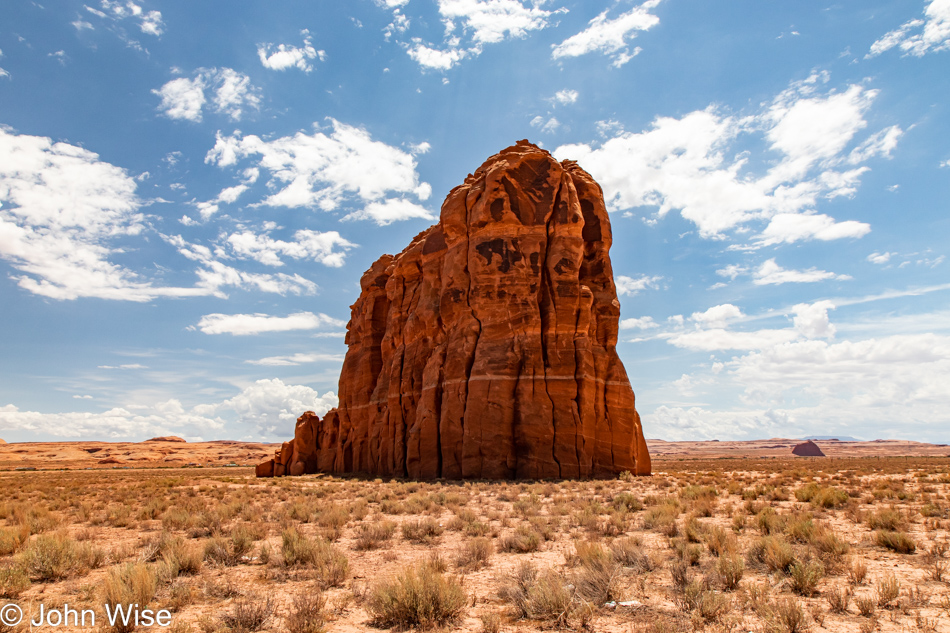
Do not be a petulant bulwark against your own motion forward, happiness, or accomplishment. Nothing is really standing in your way besides yourself. Your intransigence to see your way around minor obstacles blinds you and steals your vision to find what is just beyond the rock called self. Caroline and I are not perfect examples of growing beyond limitations, but in these moments of exploring our own freedom and independence, we get to take sight of the astonishing vistas of our vast country and consider how fortunate we are to have broken free of the shackles of unattainable lives of perfection sold by those snake oil salesmen, quacks, charlatans, con artists, and cheaters who have sold far too many Americans nothing but anguish by blaming others for what they are missing.
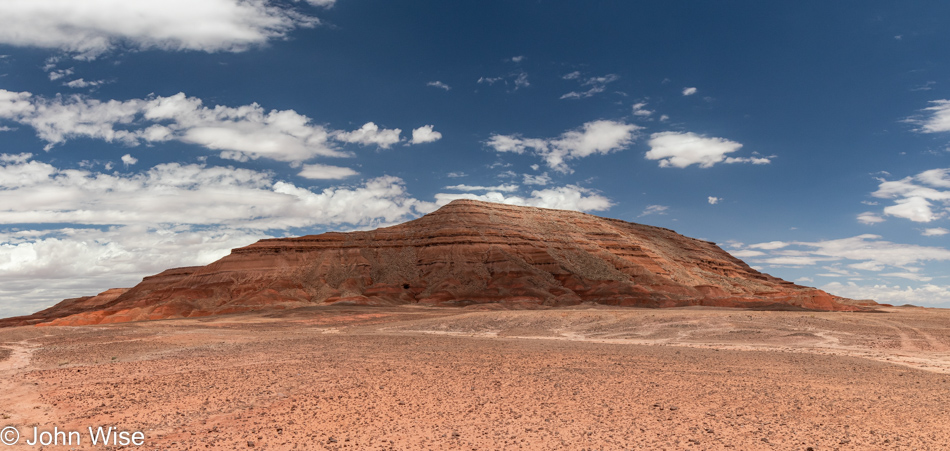
Nothing has been stolen from you aside from what you gave away. If you look into the window of the TV screen and witness the magic of incredible perfection, maybe you are already selling yourself on self-delusion. The horizon is not painted in gold, but it is embued with riches of wonder if you know how to see what you were never told was valuable. America is the dream; our freedom to venture into ourselves has never been denied, but the fortitude of the pioneer requires us to surmount obstacles, and in a modern age, that means we must clamber over our own ignorance and fear of failure.
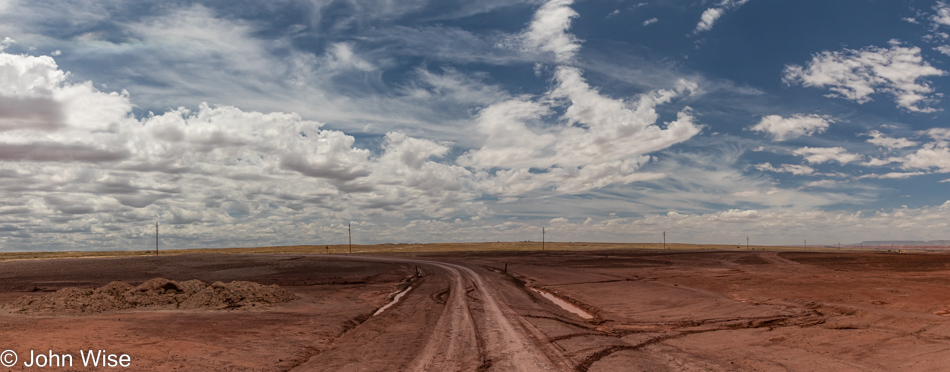
Initially, the road may not be paved, and we might struggle to determine the direction we need to take if there is no one to guide us; such is the task of the relentless fighter intent on carving a way forward. When the destination is not obvious, we are presented with our own wherewithal to make decisions and choices that might harm us as well as deliver us.
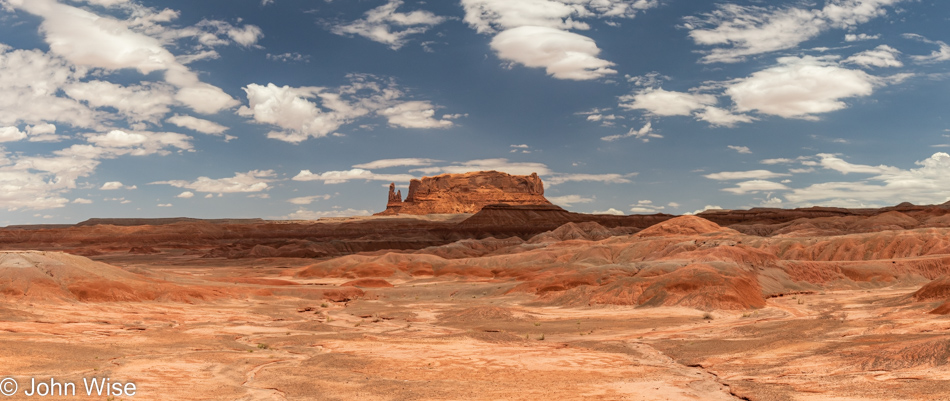
It’s bumpy out here, and what if you can’t easily find what sustains you? You keep going forward and shut up, as being a stoic is at the heart of being American. If you believe you deserve to be called a citizen of the United States, a real American, you push forward against the odds that will feel stacked against you, but in this age, it is no longer the brute force of strength that will propel you, it is what you’ve fed your mind, your education, and the opportunity you must work hard at to empower you. The easy way is for losers, they stay behind and wait for others to pave a trail instead of making the arduous journey themselves. We do not choose to stay at home watching the game, firing up the barbecue, or tossing back a beer today; we venture out to explore unknown spaces and risk learning about something that may not be initially obvious as to what value it gave us. Still, we seize the moment and embrace our radical freedom to be everywhere, anywhere, and nowhere.
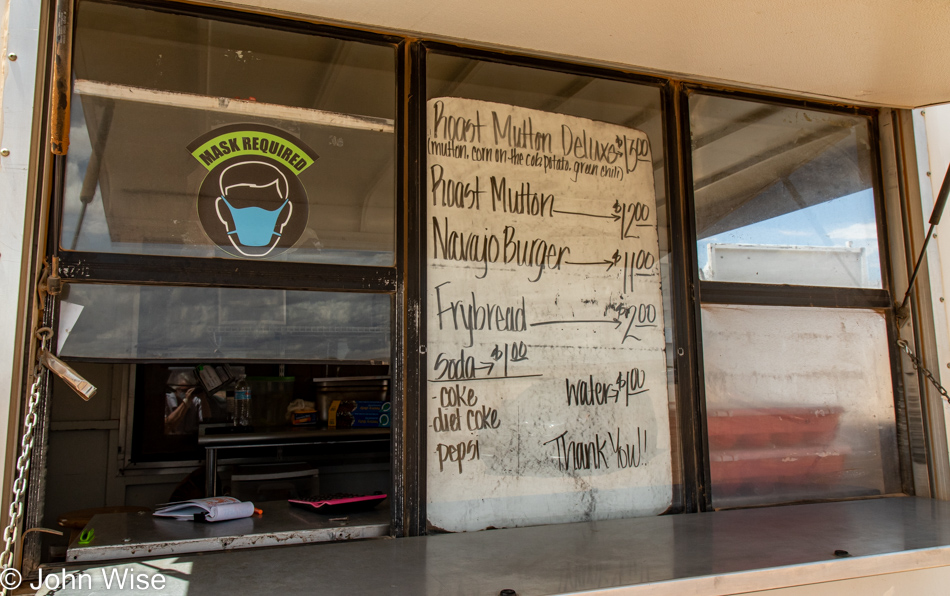
Ah, the proverbial cake is served in the form of a roast mutton sandwich on frybread. We have pulled into Chinle, Arizona, on the Navajo Nation, and it is here at an anonymous dirt lot where it might not be apparent to those driving by that a loose grouping of trucks and a few trailers is actually a small flea market. Hoping I’d get lucky to find what my deepest desires want right now, I creep over the bumpy lot, slowly driving past tables and vehicles until my eye caught a truck and trailer looking like they were offering hot food. While Caroline grabs the last dish of roast mutton deluxe with corn on the cob, potato, and green chili (which I’ll help myself to), I opt for the roast mutton sans frybread (it’s a diabetes thing) and am now being delivered to a state of sheepy nirvana.
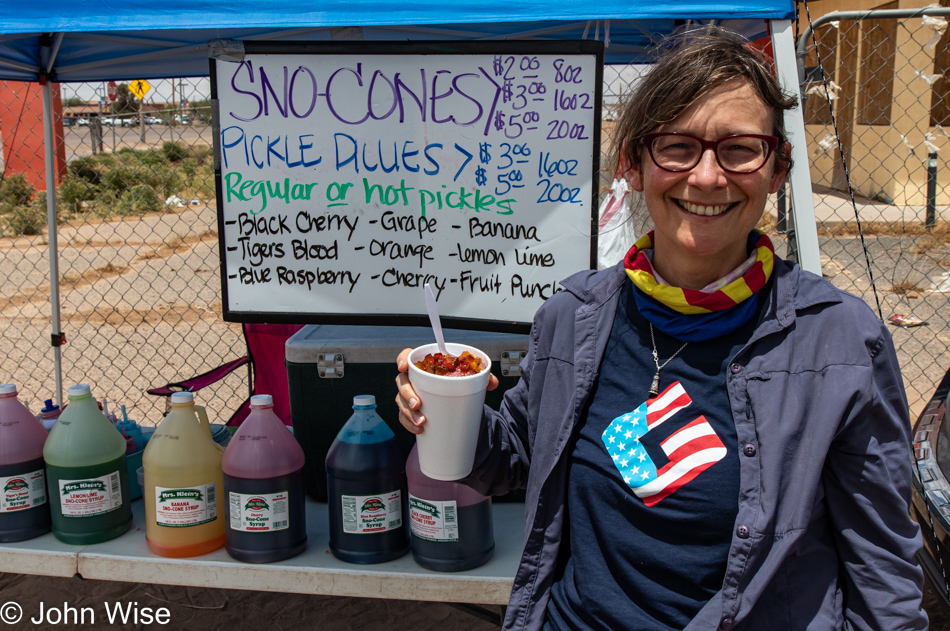
What wasn’t at the market but was found in the parking lot of a gas station was a husband and wife selling pickle dillies, which we’ve also seen offered as picadillies. Salty, sour, and sweet isn’t everyone’s cup of yummy, but my wife isn’t everyone, so the idea of having a snowcone of tiger’s blood, banana, and black cherry syrup with layers of pickles is the perfect summer treat for her. As for me, yeah, that diabetes thing again. I’ll hold out for the possibility I might find more roast mutton further down the road. If you don’t try what you don’t know, you’ll never know what you didn’t know, and you’ll only have yourself to blame for a life not lived well.
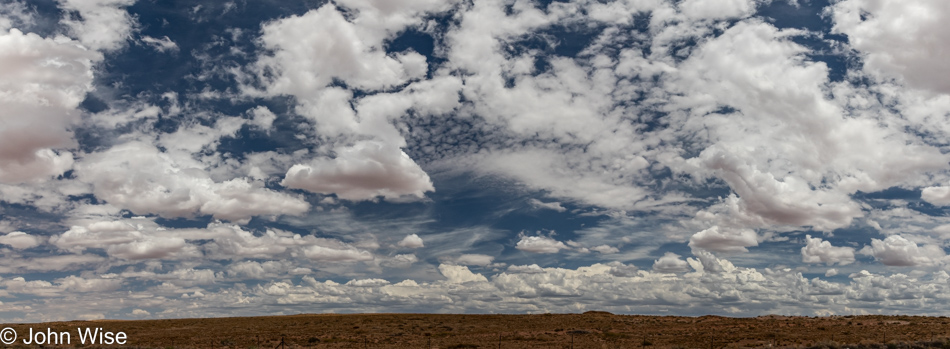
Freedom and independence are choices in a land where they are guaranteed, but you’ll have to muster some resolve to risk your sense of certainty and put away your biases. Are your mind and imagination open like the sky on a summer day, or are you locked in the dungeon of hate and resentment that others are living the life you believe you deserve yet are unable to budge from your obstinacy to grab? I’d like to reiterate that Caroline and I are not special; we are simply willing to go out, look, savor, and participate in things that are not a normal part of our routine. We give ourselves permission to step out of our comfort zone, and yet we keep finding great comfort in discovering something new and exciting where others might find nothing.
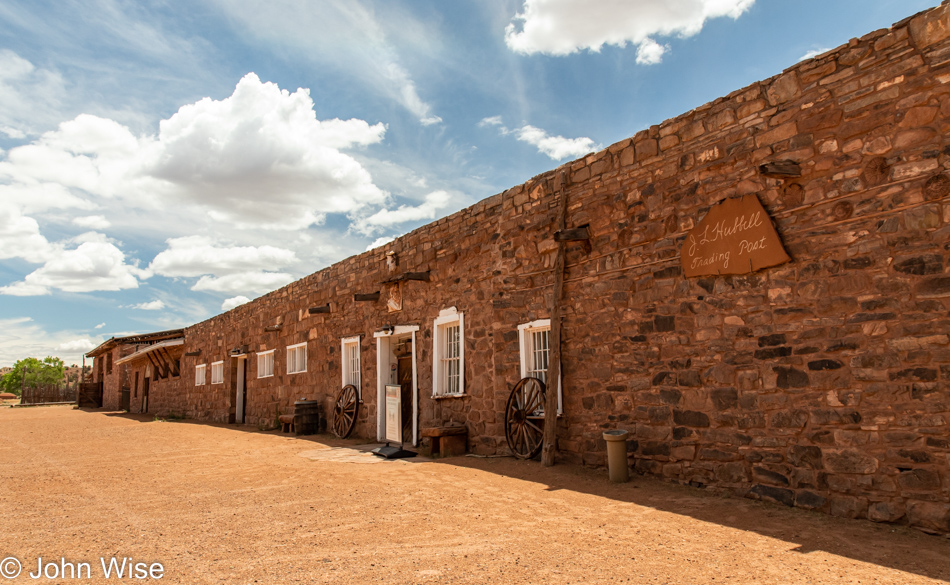
I need to stop a moment and consider things I don’t know, such as the thoughts that might arise here at the Hubbell Trading Post National Historic Site. This building is here because 158 years ago, the people of the Navajo Nation were force-marched over 300 miles from their native lands to a small reservation in eastern New Mexico. This act of human cruelty left deep scars on the Diné (Navajo), and why wouldn’t it? Forces representing the United States, along with disease and famine, killed more than a quarter of their population. So I can’t tell you how I might see the world and my opportunity in it if I came from an oppressed people. Regarding this trading post, it’s here because after the Long Walk, as the forced march is known, and the people returned to this land, trading posts were opened across the Navajo Nation as the U.S. government tried to support the Navajo in getting back on their feet.
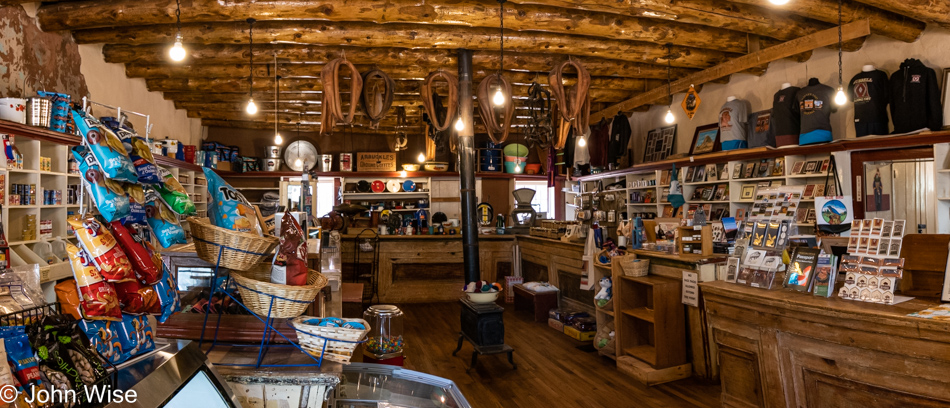
This idea of trauma hindering the ability to move lives forward is obviously a touchy one that various ethnic and religious groups have had to contend with throughout time, but I can’t help but take inspiration from Jewish people, especially those who survived World War II. Roughly 33% of the global population of Jews died between 1933 and 1945 at the hands of the Nazis while their history of persecution for centuries prior is well known, and so their resilience to bounce back following the 2nd world war is nothing short of admirable. Tenacity to get past adversity seems to pay dividends, and while not all people are alike, there’s a lesson to be learned from not only people of the Jewish faith but maybe the Mormons, too. But I’m not here to dissect the minutiae of persecuted and oppressed people or to bring into context the barbarity of various societies over the course of history; I’m more interested in the valuable lessons learned. The most important of those lessons seems to me to be that bad, horrible, atrocious acts of cruelty are perpetrated on people from all walks of life, but the ability to stop the victimization thinking and lingering in despair is key to moving forward.
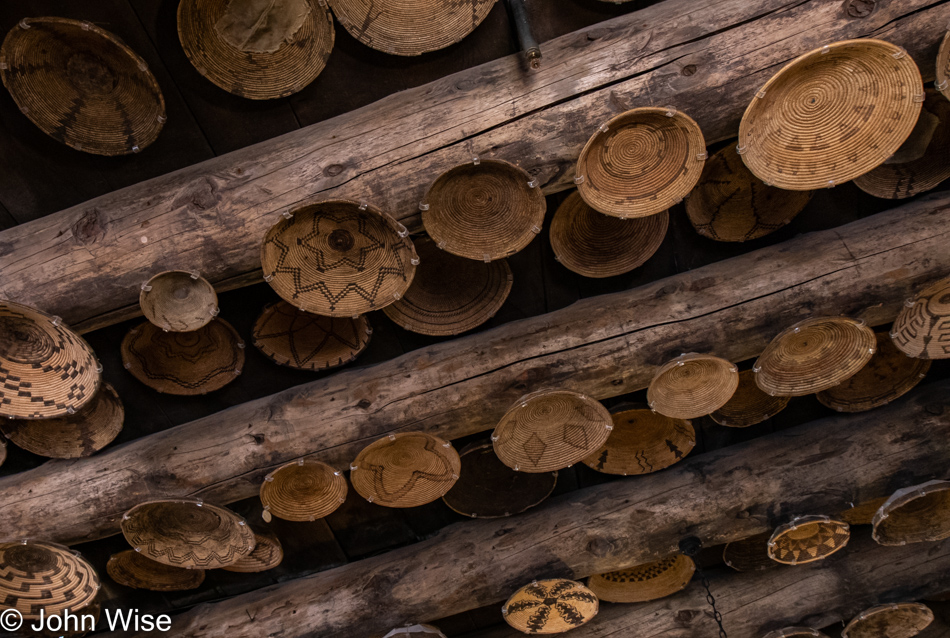
This positive way ahead applies to all of us as it seems that some relative majority of humans have suffered at the hands of neglect, abuse, lack of opportunity, bullying, condemnation, or some other bias that has negatively impacted lives. You see these Navajo woven baskets hanging upside-down here at the Hubbell Trading Post? This is considered bad in Navajo lore as baskets are used to hold important things such as food, and hanging them up in this way means they cannot serve their purpose and act in the capacity for which they were created It doesn’t always have to be this way and maybe someday they’ll be removed from the ceiling and restored to a position where, even if they never act as working baskets again, they’ll be on display and respected as what they were intended to be. People have to take themselves away from a position of remaining empty and restore their purpose. We are containers of important things such as knowledge, experience, and love, we should work together to develop our carrying capacity. We cannot relegate our function and utility to forces that only desire the sea of humanity to fill the role that brings fortune to a select few and not ourselves.
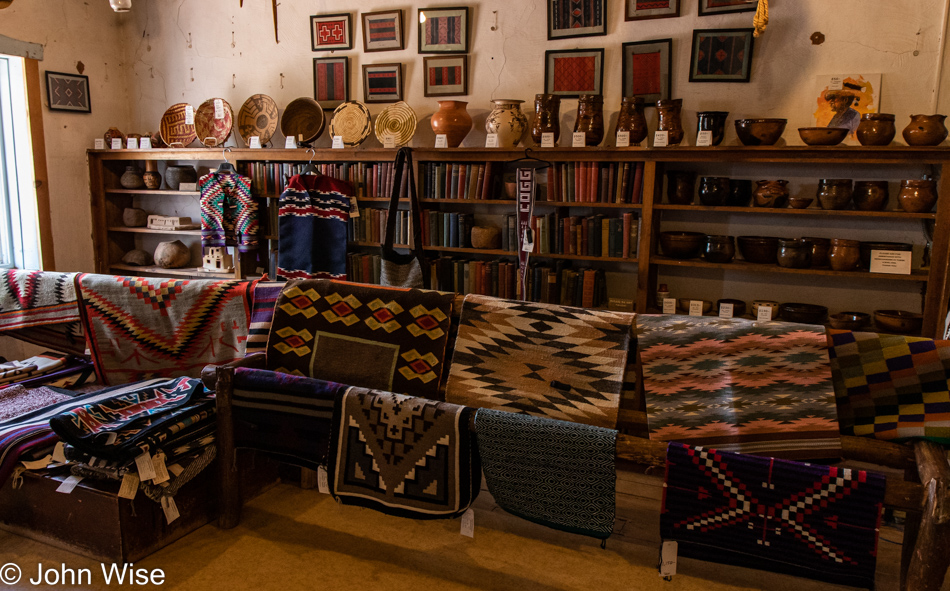
Think of this display as the face of humanity: we are pictures, baskets, pots, vessels, clothes, books, and rugs, things that all have great value, treasures if you will. When all these things are brought together, they are impressive in their magnificence, and we can easily recognize their collectibility. All of these things have something in common: someone with specific skills labored over each object to imbue them with form, particular characteristics, knowledge, artistic qualities, and every combination of those attributes that lends beauty and purpose to them. People are exactly the same, but we’ve lost sight of that as we’ve reduced individuals to being merely a thread, a particle of sand, a piece of wood pulp without real value, as though they were only a tiny constituent part of something bigger. This is plain wrong as we are all potentially fully formed artworks, fonts of wisdom, inspirations for others, and beacons of light that will lend skills and aesthetic grace to the next generation who can benefit from sharing if we don’t forget that we all have something worth offering each other.
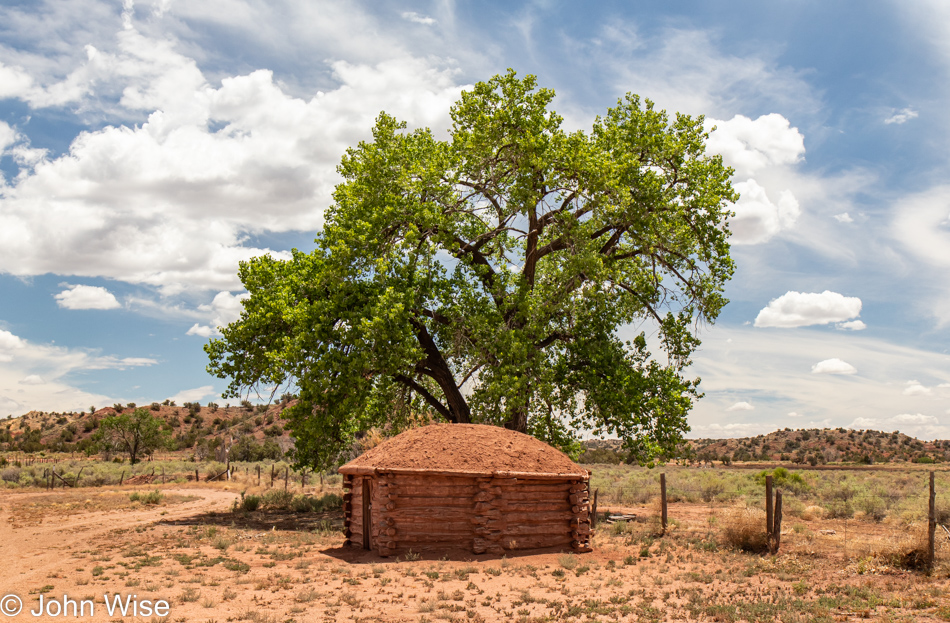
The land is the surface we all dwell upon; the tree shares its durability and strength to give us shelter, comfort, tools, food, and heat. In the case of this hogan, the earth is also the roof that protects us from the elements. With basic sheltering needs cared for, we can turn our attention to our other needs, such as growing food, but in modern society, that is often available as a convenience at a nearby grocery store where the variety exceeds almost anything we might produce for ourselves. If those necessities are the minimum that is met, we must turn our attention to decorating ourselves and our environment. In earlier societies that meant painting and adorning ourselves, embellishing the walls of our dwelling, filling the air with our song and the music of our instruments. In modernity, while many are still occupied with the brand of clothes, makeup, size of a television, type of car, or cult objects turned into fetishized commodities such as phones, bikes, or handbags, the real element of total importance is how we enrich the internal world of our mind.
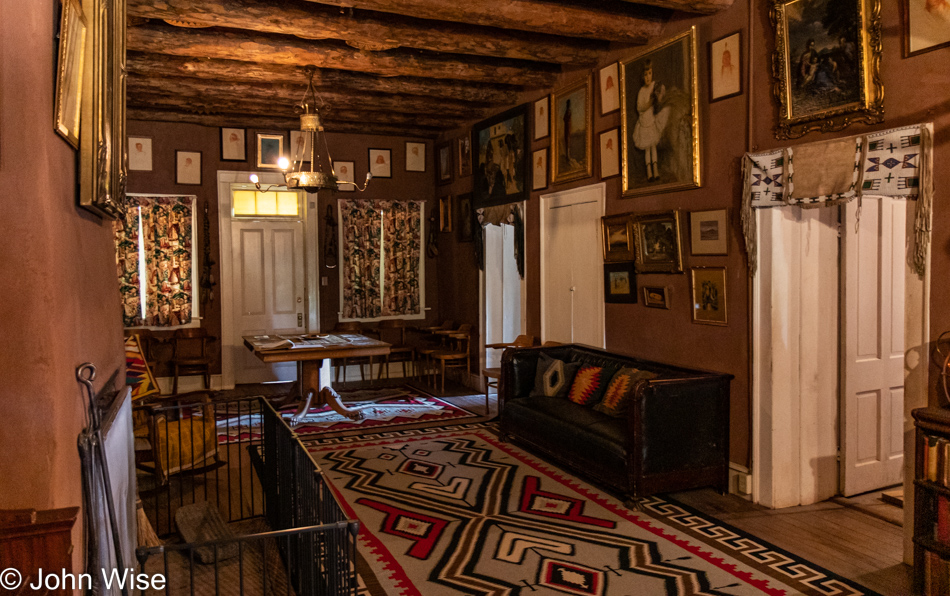
The exterior of your home, the entryway into that space, and the things that accentuate the appearance of places all carry little weight when it comes to what you bring to how you will see the world when standing before the multitude of situations you are ill-equipped to understand if you are willing to venture into the liminal.
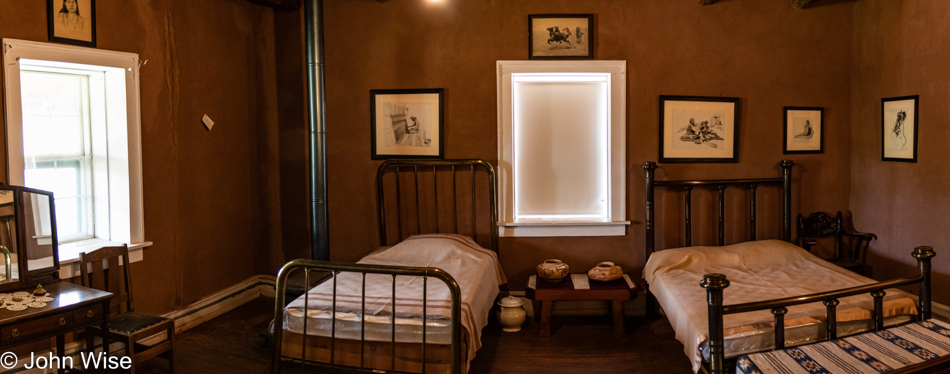
Two-hundred forty-six years ago, in 1776, humanity required a document to express the need for freedom and declare independence as the greed and brutality of a ruling class that was busy owning other people in various forms of servitude or had yoked their subjects in rules and taxes that proved that souls and bodies had been conquered reached a breaking point. It would be 90 years after that and only after a civil war that those who might otherwise claim enlightenment were vanquished, and their ideas of slavery would start to be arrested. One hundred years after that and only one year after I was born, the Civil Rights Act was signed into law. With this knowledge of the glacial pace of change, I suppose reluctantly that the recognition of the importance of the freedom of mind space and the necessity of knowledge acquisition won’t be a larger issue of societal imperative before 2065, when I’m long dead. It’s tragic how slow we are to come full circle.
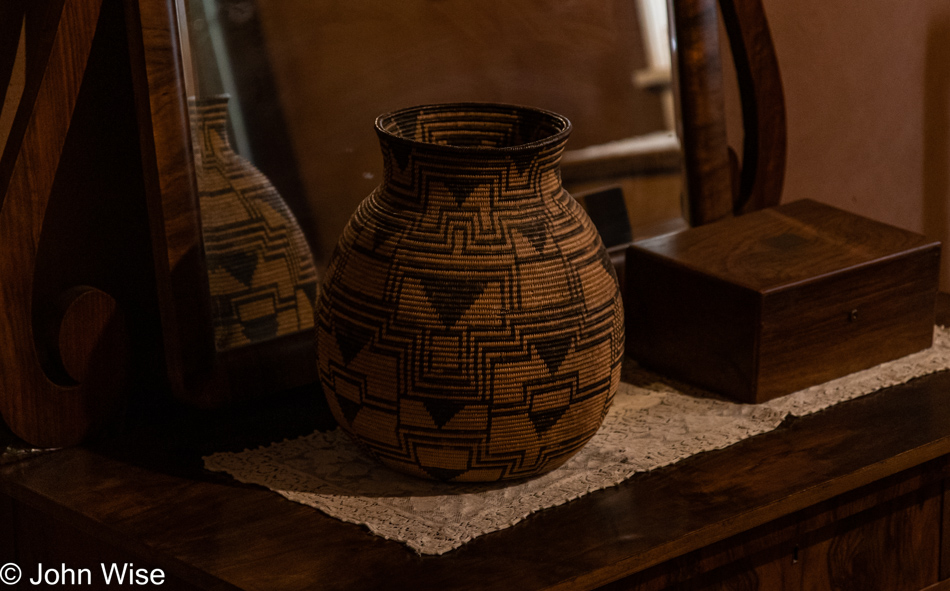
The human is but a vessel. It is this idea of us carrying the dreams, aspirations, inventions, covenants, tools, traditions, and love that we should honor this maxim instead of trying to squash it, which I feel we are doing at this time. While we cannot know with any certainty who our distant relatives were 10,000 years ago, I believe that although life might have been fraught with quite difficult struggles, they understood freedom and independence in ways that transcend anything we believe we know. Circumstances would have dictated radically different approaches to survival, but reliance on family, community, and the wisdom of those with life skills would have been paramount. Today, we proverbially throw the weak to the wolves; we cast them to the street and into existences that bring such despair that the only way to survive is through substance abuse, violence, and ultimately an early death. Our compassion for one another is less than we might place on rare and valuable objects such as this old Navajo basket.
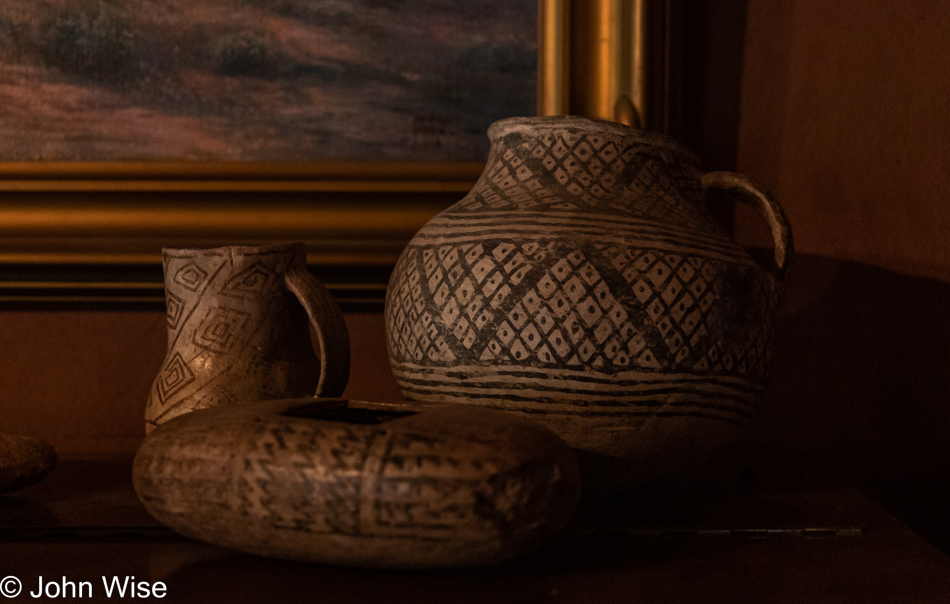
Please do not correct me by giving examples of those who help one another, the individuals who succeeded against the odds, or the various programs designed to alleviate these issues. We know full well that ignorance locks the unfortunate in systems and paradigms they are unable to escape from. It is only with concerted efforts to pry them free of their own darkness that they have a chance at finding greater value from within.
Take these three clay vessels of Navajo creation and design; today, they are likely worth more than $20,000, but sitting on this shelf, their value is merely theoretical. Someone must fall in love with them and recognize what they represent, and then if they are so fortunate, they might find a way to acquire them for their own home, but if they are truly magnanimous, they will donate them to a museum for all of humanity to enjoy into the future. Imagine if society as a whole was so generous.
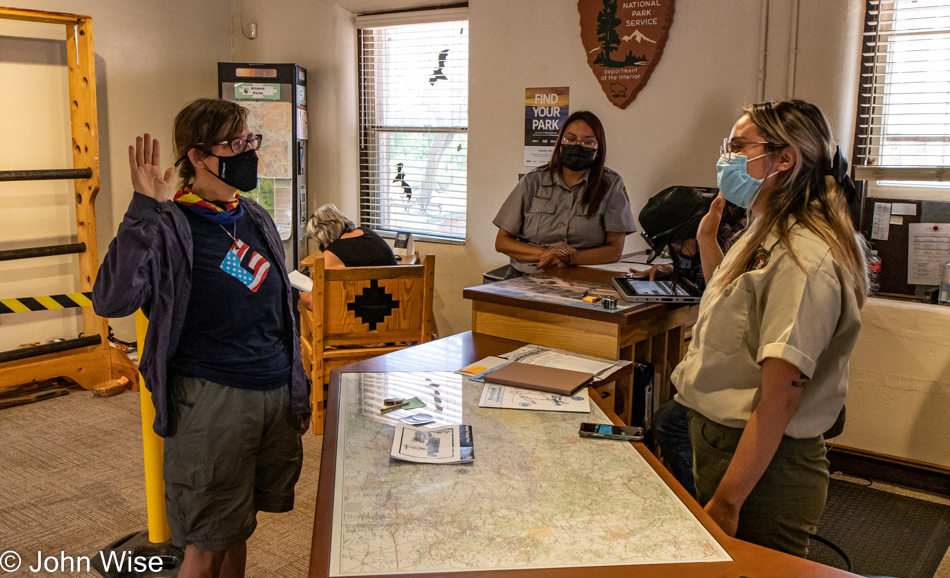
The three Diné women offered a generous and friendly embrace in taking the time to share in our enthusiasm for the native culture out here in Ganado, Arizona, and the history of the Navajo Nation as an outpost and container for the traditions of their ancestors. Caroline is once again sworn in as a Junior Ranger, but this time, it was after learning more about the lives of Ganado Mucho, who was the 12th signer of the U.S.-Navajo Treaty of 1868 that ended the captivity of Navajo following the Long Walk. We learned of John Lorenzo Hubbell (known as the “Old Mexican”), who in 1878 started this trading post whose success in part relied on the friendship of Ganado Mucho. Hubbell, who had learned to speak Navajo, had the distinct advantage of being able to better share and communicate with the survivors of atrocities that risked erasing the people of these lands, and with that ability and knowledge, he helped establish trade in Navajo crafts that allowed the post to remain an important location into the 1960s when the National Park system took over operations. Had the Fred Harvey company taken over Hubbell, it might very well have been turned into a tourist attraction similar to the “Friendly Indian” places along historic Route 66, selling imported “hand-made” jewelry and plastic tomahawks. Today, we had an opportunity to peer into history and understand a little more about the changes our ancestors wrought upon the indigenous people of North America due to the empathy of a governmental body responsible for preserving not only nature but knowledge too. If you wonder if I’m contradicting myself, nothing is ever black and white, as people, governments, and cultures should all be evolving if they are to remain healthy. Just because mistakes are made every day, this doesn’t imply they can’t be rectified as our knowledge grows.
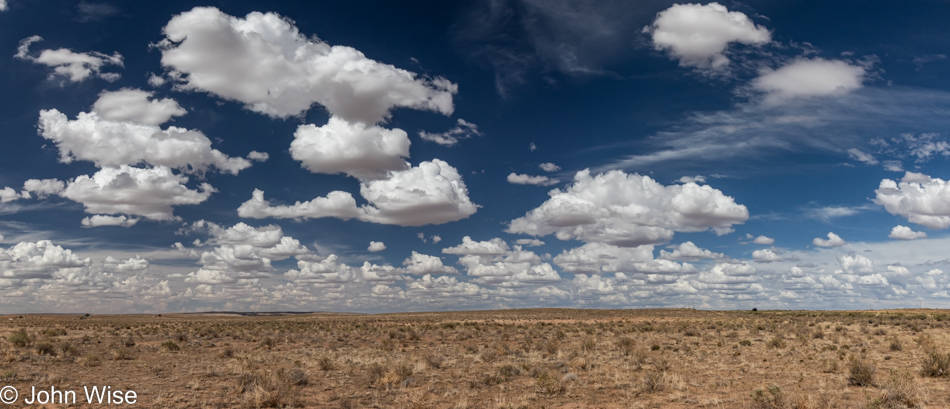
So there isn’t “nothing” out here in the middle of nowhere. There is everything that embodies the potential of people to find what they don’t yet know, to discover that freedom and independence emerge from wide open spaces that encourage people to learn what they’ve not found. First, people mustn’t be afraid of the apparent emptiness that their ignorance casts as something evil, hostile, or in need of being conquered by force; it is simply the unknown that, with time, is knowable. It is the wandering in open spaces that speaks of the greatest freedom and begs visitors to fill that apparent void with the truth of reality that exists everywhere.
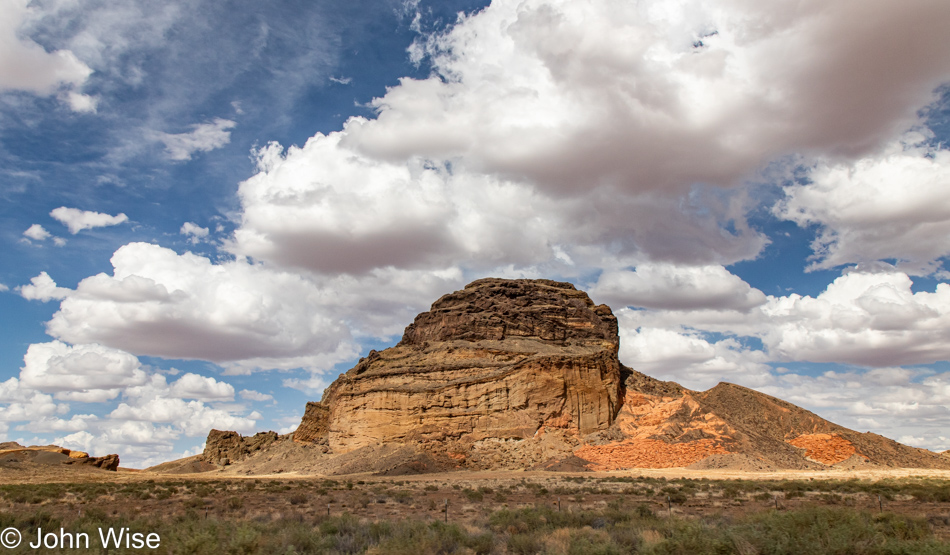
The ideas regarding freedom and independence might seem like a rock impervious to the folly of fools, but it is precisely the fools that erode the structures that hold together the mountains of society and culture. Humanity is at a juncture on the map of our future to harness the potential of people to do good, or we can turn and do bad and erase all the beauty we could preserve if we chose to understand how fragile the most important things are. Happy 4th of July! On this day, we celebrate our opportunity to experience freedom and this incredible independence while being stewards of such important ideas.